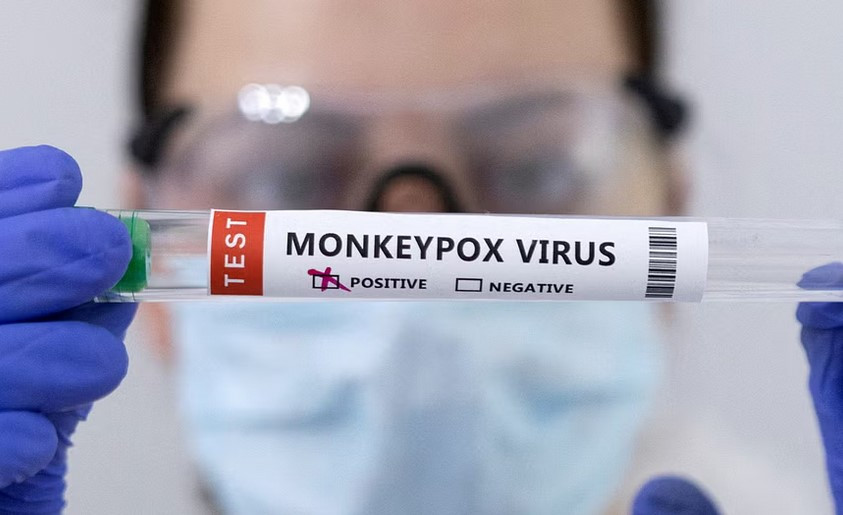The calendar has flipped to September which means people are preparing for spooky season with Halloween decorations, bonfires and pumpkin-flavored everything. While Halloween is a spooky day in its own right, many people also feel uneasy and unlucky on Friday the 13th. This year will see the date occur twice, in September and December. The next one after December won't occur until June 2025.
Fear and anxiety about the day may have been amplified by the slasher-movie series featuring Jason Voorhees, but where did the superstition originate? Here's what to know.
According to National Geographic Kids, the exact origins of when Friday the 13th became thought of as unlucky are unknown, however it "likely comes from the Christian religion." "For example, in the Bible, Judas — a person who is said to have betrayed Jesus — was the 13th guest at the Last Supper. Also in the Bible, many unfortunate things happened on Fridays," according to National Geographic Kids.
Friday the 13th combines two taboos that come from the bible, according to Dr. Phil Stevens, a retired anthropology professor from the University at Buffalo and the author of a book titled "Rethinking the Anthropology of Magic and Witchcraft: Inherently Human." Based on the story of the Last Supper of Jesus, 13 people were seated at the table and it happened on a Thursday. He was arrested that evening, and crucified the next day, on a Friday.
"So 13 is associated with that terrible event. And Friday, the 13th you get a double whammy. You get both of these elements coming together: the taboo against 13, and the crucifixion, which was on a Friday," Stevens said in an interview with USA TODAY last year.
Even though the taboo is tied to the Last Supper, Stevens said it didn't become widespread until 1,000 years after Jesus's story when more people became interested in the bible. Now he thinks the taboo is weakening as people embrace the number 13 more, and it is only a matter of time before it phases out.
Stevens also talked about how the day is an example of "magical thinking."
Stevens said that he likes to think of the superstition around Friday the 13th as an example of magical thinking. He says that magical thinking is when someone believes is there is a causal relationship between two things that are otherwise unrelated. For example, Friday and 13 together take on a different quality when they fall on the same day.
He also said he thinks of it as a taboo, as superstition has a negative connotation, even when someone uses it to describe their own belief.
"The word taboo actually is appropriate for this kind of a superstition. Because it's the it's the term that means avoiding establishing a magical connection. People can actively work magic to make things happen, recognizing the connections between things, but if the connections between things could cause an unfortunate result, then people avoid those connections." Stevens said at the time.
Some people look for positive connections between things. For example, China kicked off the Olympics in 2008 at 8:08 p.m. on the eight day of the eight month because the number is associated with good luck.
Another example is when someone has a good luck charm or assigns a higher value to an item after it has belonged to a celebrity, Stevens said.
Friday the 13th and the Tattoo Industry
Friday the 13th is something of a Black Friday for tattoo shops. Many shops run special promotions charging steeply discounted prices to get work done, often for a flat rate at or even under shop minimum (the minimum fee a shop will usually charge on a tattoo to cover the cost of the basic supplies and overhead). The average hourly price most artists charge is between $100 to $200 plus, making these flash sales a great deal. While affordable predesigned flash tattoos and flash sales are not uncommon practices throughout the rest of the calendar year, Friday the 13th is the one day you can depend on finding a wealth of markdowns at multiple shops near you.
The modern model for Friday the 13th as a tattoo holiday is often credited back to co-owner of Elm Street Tattoo in Dallas Oliver Peck, who you may recognize from TV show "Ink Master" and his brief marriage to Kat Von D (he has since been remove from the show due to a blackface controversy). Peck previously told Vice that he "definitely wasn't the first person to do it," saying he drew some inspiration from fellow artist Dave Lum's Halloween specials, but that he did "make it an event." He threw his first major Friday the 13th function in 1995 at the now-defunct Pair O' Dice in Dallas, a marathon session of tattooing the number "13" on as many people as possible in a 24-hour period.
His swing at creating his own tradition caught on, as he and his co-workers began hosting these 24-hour tattoathons each year, at one point winning a spot in Guinness Book of World Records for tattooing the number 13 on 415 people in 24 hours on Friday, June 13, 2008.
The Influence of Culture and History
Friday the 13th’s reputation for bad luck largely originates from religious and cultural beliefs. In Christianity, it is associated with the Last Supper, where Judas, the 13th guest, betrayed Jesus, leading to his crucifixion on a Friday, according to USA TODAY. Norse mythology also contributes, with the 13th god, Loki, bringing chaos and death. This superstition deepened over time, particularly after the mass arrest of the Knights Templar on Friday, October 13th, 1307, further cementing the day’s unlucky status.
The Cultural Significance of Friday the 13th
Today, as many look forward to the end of the work week and the start of a relaxing weekend, some find themselves dreading the date – Friday the 13th. Often associated with superstitions and considered unlucky, this day brings about a mix of anxiety and intrigue for those with friggatriskaidekaphobia, the irrational fear of Friday falling on the 13th.
If you're wary of this infamous date, it might be best to stay away from social media today. The term "Friday the 13th" is trending on platforms like X, where users are sharing a plethora of posts related to the day. This surge in online chatter has contributed to the date's notorious reputation, with various memes and jokes adding a light-hearted spin to the otherwise eerie day.
The origins of the superstition surrounding Friday the 13th are shrouded in mystery and myth. According to the BBC, there is no definitive reason why this day is deemed unlucky. However, several theories and historical contexts contribute to its sinister reputation.
The association between Friday and misfortune can be traced back to Christian traditions. It is believed that Jesus Christ was crucified on a Friday, and Judas Iscariot, the betrayer, was the 13th guest at the Last Supper. These events have historically linked Fridays with bad luck.
Furthermore, Friday's ill repute extends back to mediaeval times. Known as "hangman's day," this day was infamous for the frequent executions that occurred. The notion that Friday was an unlucky day became entrenched in societal beliefs, reinforcing its negative connotations.
Despite the dark history and the superstitions that surround it, Friday the 13th remains a day of fascination and amusement for many. Whether you view it as a day to be cautious or just another ordinary Friday, the blend of historical context and modern social media activity ensures that the date continues to capture the public’s imagination.
Adding to the day’s prominence, "Friday the 13th" is currently a top trend on Google Trends. This increased visibility reflects the date's ongoing cultural significance and the public’s fascination with its associated myths.
Friday the 13th: A Day of Intrigue and Uncertainty
So, is Friday the 13th really unlucky? The answer, much like the day itself, is shrouded in mystery. While there is no concrete scientific evidence to support the belief that Friday the 13th is inherently unlucky, its historical and cultural significance cannot be ignored. As a society, we continue to be fascinated by the idea of luck, good or bad, and Friday the 13th serves as a compelling reminder of the power of superstition and the influence of cultural beliefs on our perception of the world.



















